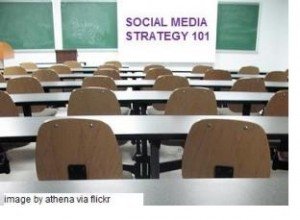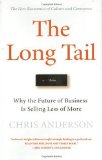Did Mashable Break Twitter Button Embargo?
I just noticed a couple of tweets mentioning that Twitter will be announcing a Twitter button, most likely tomorrow. What I found interesting is not the news, but the image that accompanied the articles. The images clearly state (the above is one of several in the article):
Twitter Confidential – subject to NDA
This leads me to ask, did Mashable break an embargo or did someone inadvertantly send the image without obtaining one first? If the former, how does this impact how PR professionals approach blogs as part of a communications plan?
With TechCrunch publicly stated that they will no longer honor embargos, PR professionals have to be more vigilant of the policies and, in some way, integrity of the outlet and reporter/bloggers you’re contacting.
I don’t advocate getting every reporter to sign a multi-doc NDA, but by the same token, I don’t think a verbal NDA may suffice anymore. What do you think?
Now, if I were more cynical, maybe Twitter meant to have this leaked =) Mashable, would love to hear from you on this.
Social Media Marketing Strategy 101: Definitions
 I had an interesting conversation with someone a few weeks ago about the definition of social media and social media marketing. I think it’s important to explore the definitions to ensure that we’re on the same page.
I had an interesting conversation with someone a few weeks ago about the definition of social media and social media marketing. I think it’s important to explore the definitions to ensure that we’re on the same page.
I posted this question to my different social networks and here are couple of responses that came back:
I would define social media and social marketing, as an attempt to connect with a niche portion of the population, which utilizes digital channels of communication. These individuals were formally unavailable and couldn’t have been harnessed through traditional marketing avenues. This day and age, it has become increasingly important to reach out to these individuals, especially in light of the expansion of social networking. Consequently, social platforms now grant businesses the ability to accomplish this with ease. By establishing more transparency and openness, companies can ultimately harness potential customers that were previously unattainable. – Ryan Schoenefeld via LinkedIn
akornblattSocial Media are the tools, Social Marketing is what you use Social Media for.
akornblatt Social media are the tools used in social network and social marketing, which are both unique as well
Social Media and Social Marketing Defined – Simply
While Wikipedia provides a fairly academic definition of social media, here’s my simple definition: Social media is when you and I use online applications, such as Twitter, LinkedIn, Facebook, etc. to create, share, and distribute content (e.g. Video, blog posts, etc.).
If Social Media is the tools, then Social Media Marketing is the toolbox. From my perspective, Social Media Marketing leverages social media to achieve key marketing objectives and engage in conversations with key constituents.
Conclusions
Based on these definition, my goal with these series of posts is to explore how organizations can leverage a social media marketing strategy to achieve marketing and communications goals. Like all marketing strategies, this requires different components to come together under this umbrella, such as public relations, lead generation, customer relations, analyst relations and more. Hence, I am changing this from “Social Marketing Strategy 101” to “Social Media Marketing Strategy 101.”
Do you agree or disagree? Let me know.
Other Posts in the Series
1. Social Media Strategy 101: Are You Ready?
2. Social Media Strategy 101: Which Persona Helps Tell Your Story?
Social Marketing Strategy 101: Are you ready?
 Previously, I highlighted how I used social media. After reading recent posts by Dave Fleet and Social Media Explorer regarding the social media marketing ecosystem and measurement respectively, I wanted to expand upon my thoughts about how to take social marketing to the next level.
Previously, I highlighted how I used social media. After reading recent posts by Dave Fleet and Social Media Explorer regarding the social media marketing ecosystem and measurement respectively, I wanted to expand upon my thoughts about how to take social marketing to the next level.
One challenge for many marketers isn’t how to get started, rather it’s how to delegate your time to make the most out of your social marketing. This series of posts will look at putting a social marketing strategy together. And where relevant, I’ll add my thoughts in terms of how PR can leverage this information for their strategies as well.
While many may start strong with social media, these efforts may slowly stop without fully evaluating if you’re ready to embark on a social marketing strategy. Here are six questions to ask yourself before starting:
1. Are your executives supporting you? While social marketing is being adopted by corporations, the question is whether your executives understand the value of social marketing to the business. Since results may not be immediate, you’ll want one executive sponsor who can advocate for the program and highlight the long-term benefits.
2. What are your objectives? The tendency is to start setting up pages and accounts before fully understanding what your objectives are. Take a step back and outline what your goals are before setting up accounts.
3. Where is your audience? Along with your objectives, evaluate where your audience congregates. Jeremiah Owyang of Web Strategist Blog calls this “fish where the fish are.”
4. Do you have something to say? Getting started is easy. Maintaining the momentum is difficult. Do you and your company have something to say, consistently? If not, then maybe starting a blog isn’t the best venue for you but maybe slideshare.net where you can post occasional presentations and white papers.
5. How much time do you have to dedicate to this? According to Exhibitor Media Group, 30% of marketing professionals spend 6+ hours on social marketing a week, with 10% spending 21+ hours. Do you have the time to monitor, create content and track metrics for your programs?
6. Who’s doing the work? Ok, you’ve identified someone who has the time, but who is that person? Social marketing is an extension of your corporate brand. You need to have the right individuals in place to evangelize and steward your brand.
Conclusion
By answering the above six questions, you can develop the right approach that fits your company and time. What other questions should one ask before pursuing a social marketing program?
SPINdustry – Discrediting PR in 30 Minutes
I was watching TV over the weekend with my husband and happened to be on the E! Channel. We started watching this show called SPINdustry, which has the “inside” look of public relations. I don’t know about you, but I thought this show did more to harm to PR than enlighten what the industry is about. Here are three things I took away:
1. PR People are Bitchy: If you were to watch this show, you would think that everyone is backstabbing and looking out for only one’s career.
2. No Strategy Required: In this episode, the “gals” were running around putting together an event in one day. It just seemed that there was no strategy for the work beyond getting the big name stars to use their client’s product so it would appear in the magazines the following day.
3. PR Executives Just “Hob Nob”: The two main executives seemed to do no heavy lifting besides meeting with clients, having lunch and showing up at the venue right before it started.
It’s unfortunate that a show like this will be seen as being representative of public relations. While the client’s product was photographed in multiple consumer magazines, I’m unsure what the true objective of the PR program was. The client’s messages and objectives seemed to get lost in the process.
Maybe this is how entertainment PR is done and how it dramatically differs from technology PR. I would love any insight from someone from the entertainment industry. Is this show TRULY representative of your industry?
Optimize Your Tradeshow Presence
Media Alert
Consider issuing a media alert (a smaller version of a press release) one to two weeks before the conference. The purpose is to highlight your participation at the event, why attendees would want to visit your table or booth, and highlight any executives speaking at the conference.
Announce News
Consider announcing significant news at the conference to drive buzz about your company. The news can be a game changer such as a new product, partnership or customer.
Media Outreach
While some conferences will provide you with a media list, don’t completely rely on this as your single source for media. Research local reporters, analysts and bloggers who may be interested in meeting with your executives to learn more about your company.
Social Media
While social media provides marketers more opportunities to directly connect with customers and prospects, it’s critical to engage in the conversation and use it as a listening tool. Monitor the conference hashtag to identify key conversations, consider posting event summaries to your blog or update your Flickr page with images from the show floor.
Consistent Messaging
From the person staffing the booth to your key sales person networking the conference show floor, ensure that everyone is consistent on the key messages you want to communicate at the conference. I recommend creating a one-page cheat sheet that you review with everyone before the conference begins.
What other tips do you have for optimizing your tradeshow presence?
PR Freelancers versus PR Agencies: Five Points to Consider

Four years ago this month, I left the agency side to move in-house. During this time, I’ve had the opportunity to work with different types of agencies, do an agency search and consider the value of working with a PR freelancer. If you decide to bring in outside PR help, here are five points to consider:
Administration
The general rule of thumb is that 10% of any retainer goes toward administration. On this point, I do favor opting for a PR freelancer over an agency, especially if you have a smaller budget. Working closely with a contractor streamlines the process, focusing more on the tangible PR work versus administrative activities such as detailed weekly reports, activity reports, etc.
More Arms and Legs
Let’s be frank, the idea of bringing in outside PR is to provide more arms and legs to get the work done and deliver results. This will vary on your budget and PR objectives. A PR agency has a slight edge as the agency can grow with your PR needs. A PR contractor will be limited by the number of hours in her work week.
Transparency
Along with administration, another aspect is transparency on what work is being done for your monthly retainer and by whom. Like administration, I believe a PR contractor has the edge over an agency. A contractor’s work is very evident based on the results provided and daily interactions. With a PR agency, it can be difficult to know who is truly pitching your business to the media – the seasoned account manager or the fresh-on-the-job account coordinator. Believe me, when a reporter forwards you an obvious mass pitch sent from the AC, you start wondering about the “transparency” that an agency provides.
International Coverage
Our world is more economically intertwined that it’s ever been. At some point, so will/may your business. Being able to reach global media, understand local customs and cultures, and communicate your messages accurately will be difficult with a PR contractor – no matter how well connected she may be. A PR agency with a global network or branches will provide an advantage for expanding your business and messages globally.
Experience & Strategic Counsel
On this one, I believe an experienced PR contractor and good agency will be on pare with one another. My one beef is the use of “name dropping” as a sign of experience. No – that’s a sign that you are a good networker but not necessarily a good PR person. The things I look for are:
* Chemistry: Does the person/team have a good rapport with you?
* Results to date: What results have they delivered in the past and for what type of client? Getting cover stories for a Fortune 100 does not apply to a start-up company.
* Referrals: Who is willing to vouch for the person? Ask for referrals to support what is being said in the room
* Does the Tail know what the Head’s doing? This one mainly refers to PR agencies. Oftentimes (and this has happened to me), a Director/VP and above will promise something to the client that falls to the team to implement. Or there is too divergent of thinking between the “team” handling the day-to-day and the “executive” counsel that parachutes in.
* Domain Expertise: This is tough one for me. I lean towards selecting someone/agency that really knows PR over domain expertise. Why? If you know how to speak with reporters and position a company, this transcends industries. The one exception that I can consider is if you MUST launch immediately; thereby requiring instant access to the reporters/influencers in your space.
Conclusions
In the end, selecting a PR contractor or agency depends on your objectives, budget constraints, size of company and working style. Pease let me know if there are any other points to consider in the comments.
Tweet this on Twitter
PR Contractor versus PR Agency: 5 Points to Help You Decide by @csalomonlee: http://bit.ly/8GDGSJ #marketing #pr
Marketing and Public Relations – Nothing but lies?
Note: This past year has been one of reflection regarding family, friends and career. This will be one of many posts regarding various topics that I’ve mulled over from time to time through the year. Thank you in advance for your support and comments as I explore these topics.
My husband likes to say that marketing and public relations is about who lies the best. When he tells me this, I am completely offended. Yet, I have to admit, there is a kernel, and probably a big one at that, of truth in his perception.
Our job is to present our companies or clients in the best possible light. The question is how far are we willing to take it in order to land the big story or customer? At what point does “spinning” lead to outright lying?
The Ethical Quandary
We’ve all probably been in that situation – we’re marketing or publicizing a product /company that we know deep down can’t deliver on the promise. Or a competitor is blatantly lying and no one is catching on. It’s a very difficult position to be in, especially in today’s economic times when you don’t want to jeopardize your job security.
“The Truth Will Set You Free” – Gospel of John
It reminds me of the movie Liar Liar of Jim Carrey. His whole persona is about lying to win, until one day, he can only tell the truth. At first, this creates embarrassing situations for him. But the moral of the story was that by telling the truth, he was able to win a court case, and more importantly, his family back.
Or more recently, David Letterman’s predicament. He honestly, and painfully, revealed himself on his late night talk show. He didn’t downplay the situation or minimize his role. He took it head on. And in doing so, he defused the inevitable media storm, refocused it on the blackmailer and gained sympathy from most viewers.
“To thine own self be true” – William Shakespeare
Staying true to oneself is important. The decisions you make today do have an impact on you professionally and personally down the road. While it may not be easy, there will be times when you have to stand your ground.
In the end, who do you want staring back at you in the mirror?
About
Favorite Service
Recent Comments
- on Going Virtual Isn’t Necessarily the Answer to Replacing Your Physical Events
- on Going Virtual Isn’t Necessarily the Answer to Replacing Your Physical Events
- on Going Virtual Isn’t Necessarily the Answer to Replacing Your Physical Events
- on Going Virtual Isn’t Necessarily the Answer to Replacing Your Physical Events
- on Going Virtual Isn’t Necessarily the Answer to Replacing Your Physical Events
Ads by Google
Favorite Books
Marketing Blogs
PR Blogs
- KD Paine's Measurement Blog
- Micro Persuasion
Virtual Events & Meetings Blogs
- Cisco Virtual Environments
- It's All Virtual
- The Webinar Blog
- Virtual Edge Institute

 Follow
Follow

 Cece Salomon-Lee is director of product marketing for Lanyon Solutions, Inc. and author of PR Meets Marketing, which explores the intersection of public relations, marketing, and social media.
Cece Salomon-Lee is director of product marketing for Lanyon Solutions, Inc. and author of PR Meets Marketing, which explores the intersection of public relations, marketing, and social media. 


